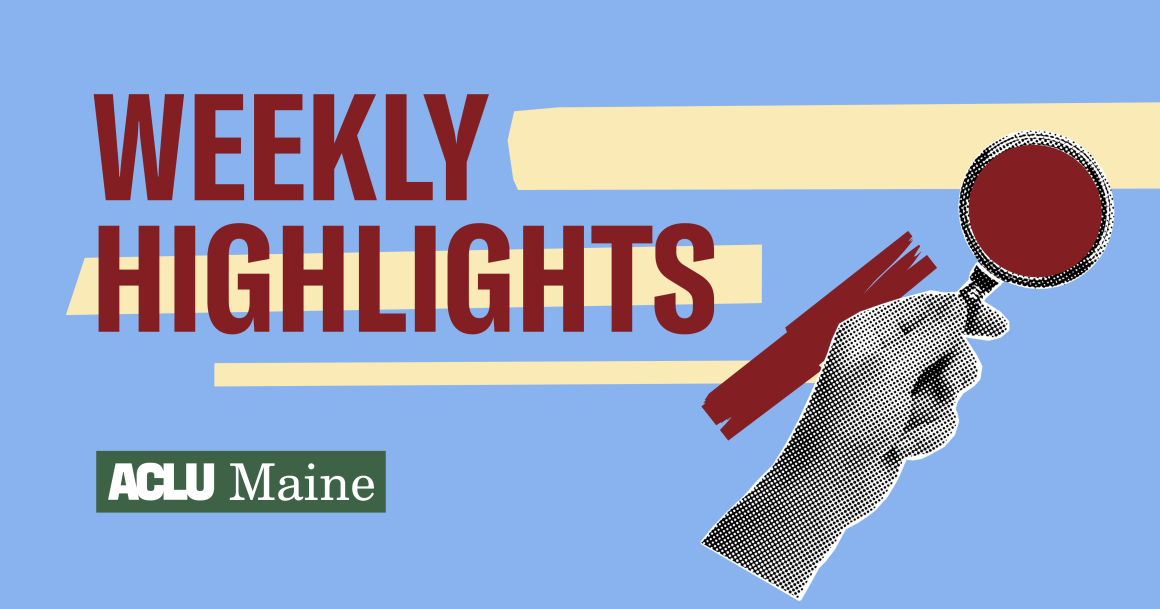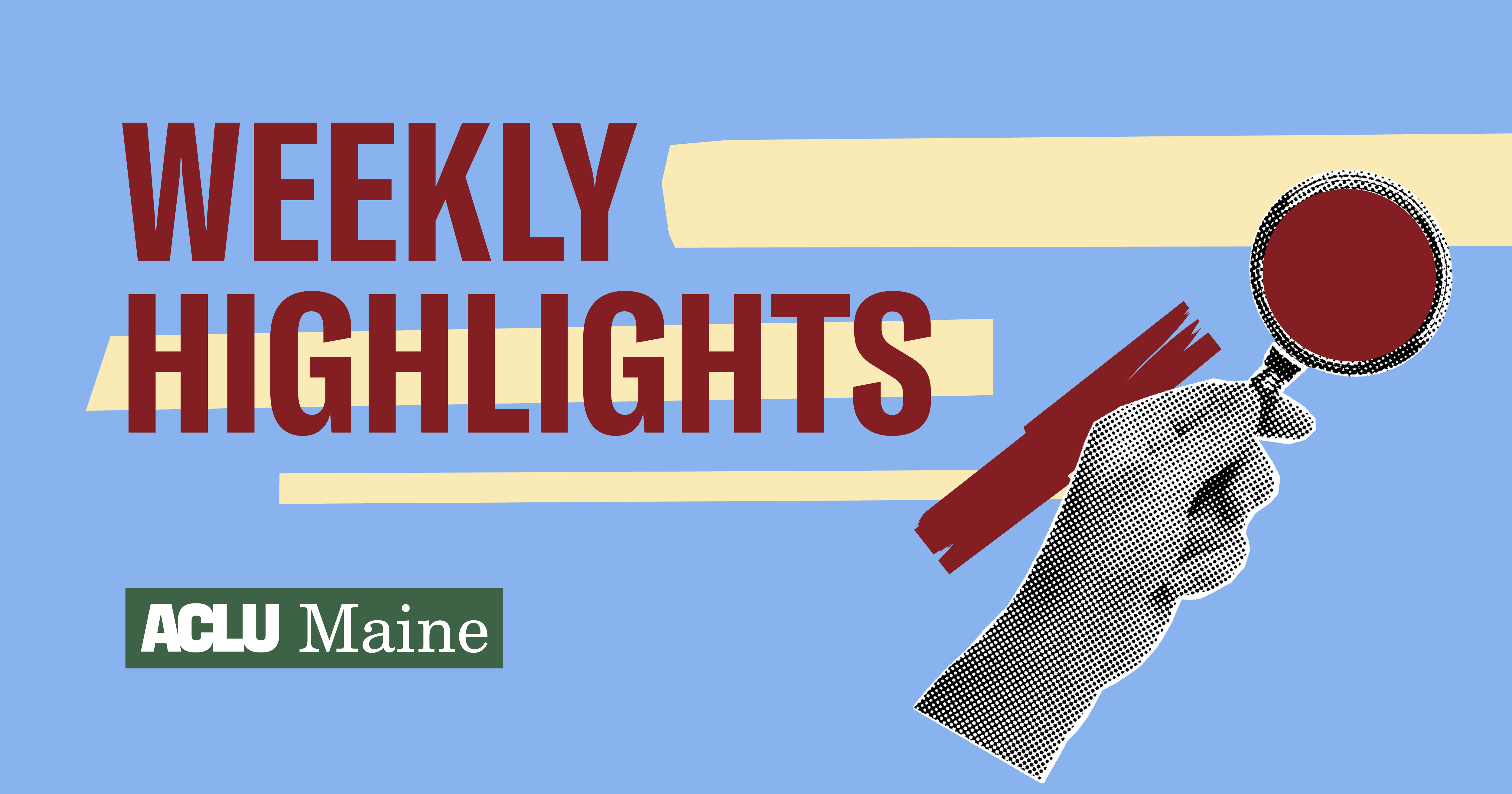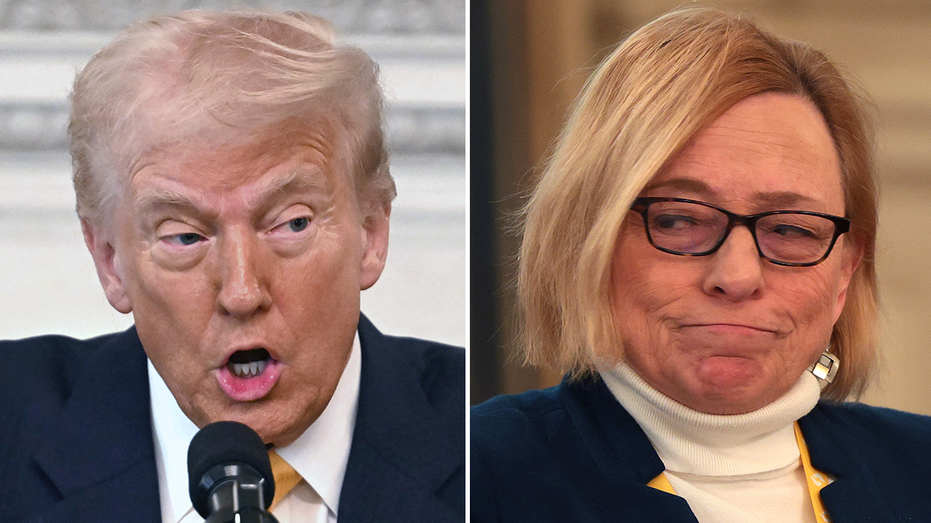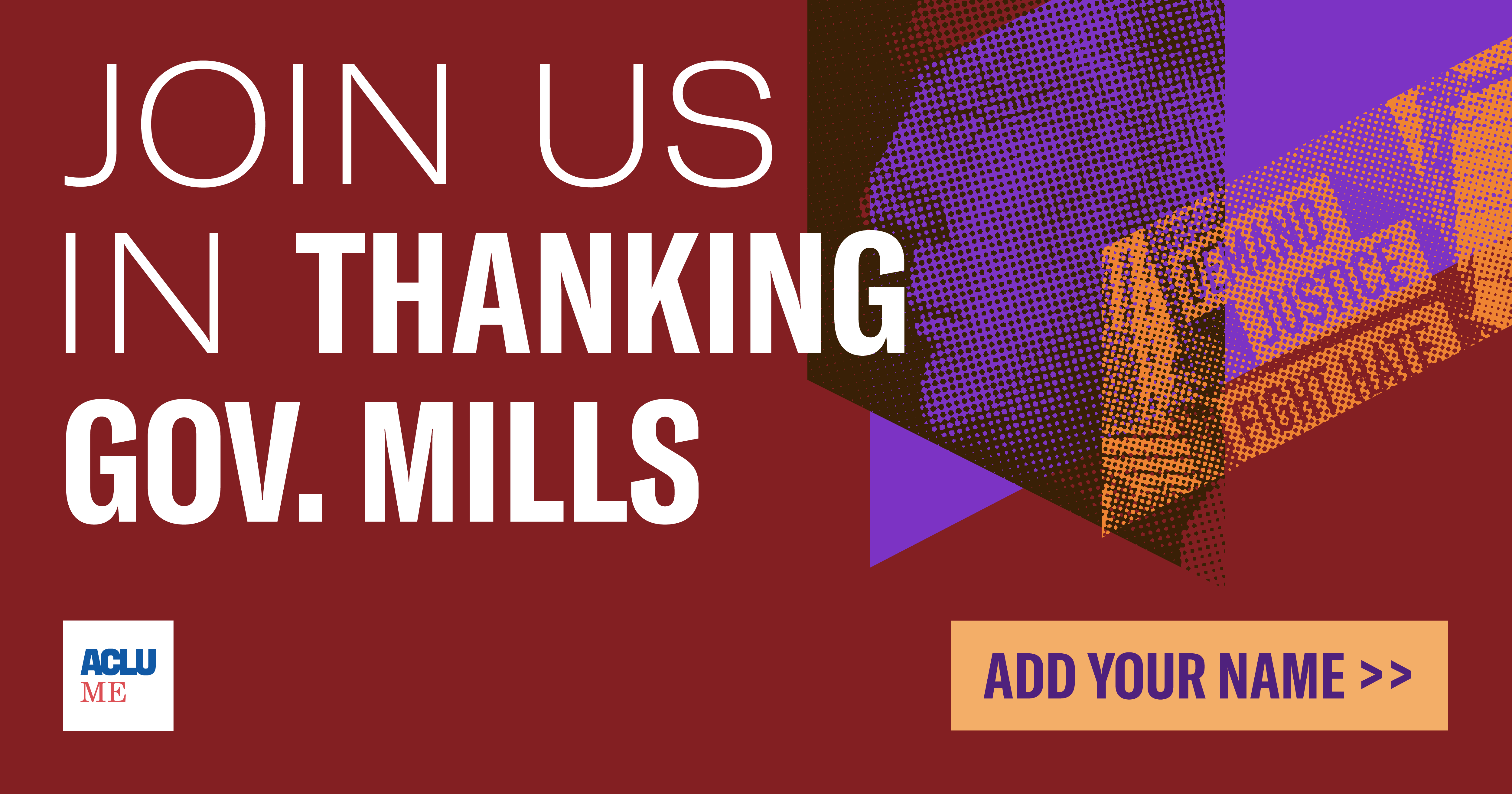
It was a busy week at the ACLU of Maine as we welcomed new staff, responded to Trump’s threats against Maine, testified on multiple bills at the legislature, and more. Catch up on some of this week’s highlights below.
Campaign to Thank Gov. Mills for Defending the Rule of Law
In case you missed it, last week, President Trump threatened to withhold federal funding to Maine at a bipartisan meeting of governors unless the state adopted his personal policy preferences.
He went on to say, "I am the law." Governor Mills responded with one of our favorite phrases: We'll see you in court.
Following that confrontation, we shared a form for Maine residents to thank her for defending the rule of law. In just a few days, nearly 1,500 people emailed Gov. Mills to express their appreciation. You can send your own message here.
Read more about this from our executive director, Molly Curren Rowles, here.
Legislative Testimony in Augusta
As the new legislative session in Maine gains speed, our policy team has been hard at work testifying before lawmakers in Augusta. This week, we testified on nine different bills, both in person and in writing. Our testimony included our opposition to two resolutions calling for a constitutional convention (SP 10 and SP 173).
A constitutional convention is one way to amend the U.S. Constitution. It has never been done before and poses grave risks to our civil liberties. There are no standards to govern how a constitutional convention would be convened and conducted, so there is no way to ensure it represents the people or is conducted fairly. There is also no way to ensure that the convention would limit itself to the issues the convention was created to address. Instead, delegates could veer off into dangerous areas and upend some of the most fundamental protections and freedoms guaranteed by our nation’s foundational document.
You can learn more about our legislative priorities this session here
Welcome to Our New Education and Engagement Coordinator!
This week, we welcomed our new education and engagement coordinator, Aaron, to the ACLU of Maine! With Aaron on the team, we’re excited to breathe new life into our engagement, education, and volunteer programs. Aaron will help us strengthen our relationships with communities throughout Maine and harness the power of Maine's people. Aaron will lead trainings and other educational opportunities for volunteers and community members, engage supporters on various actions, strengthen our partnerships with businesses and other organizations, and more.
If you’re already signed up to volunteer with the ACLU of Maine, expect to hear from us soon. If you haven’t signed up for our volunteer network yet, you can do so here. To see other ways you can get involved or take action, visit the Take Action page of our website.
New Know Your Rights Resources

Our immigrants' rights page has streamlined information, videos in several languages, and printable materials so you can know your rights on the go and spread the word. We've also added new information so you can know your rights when talking to others about their legal rights.
In the near future, we'll have immigrants' rights information for people who work in health care settings, schools, and places of worship. We'll also have social media graphics you can use so you can spread the word on your own pages.
Date
Friday, February 28, 2025 - 12:15pmFeatured image




